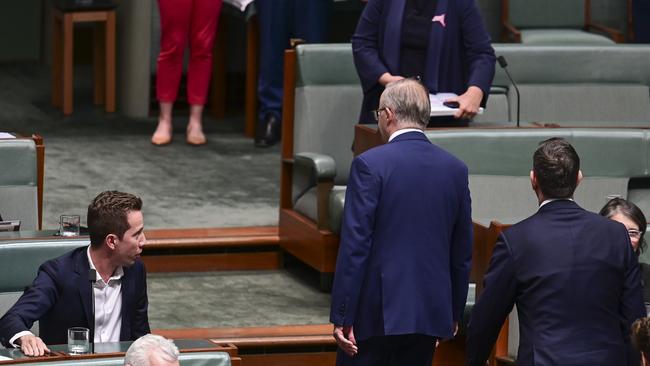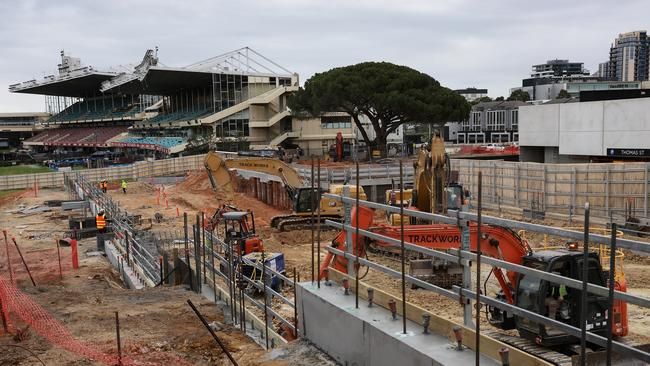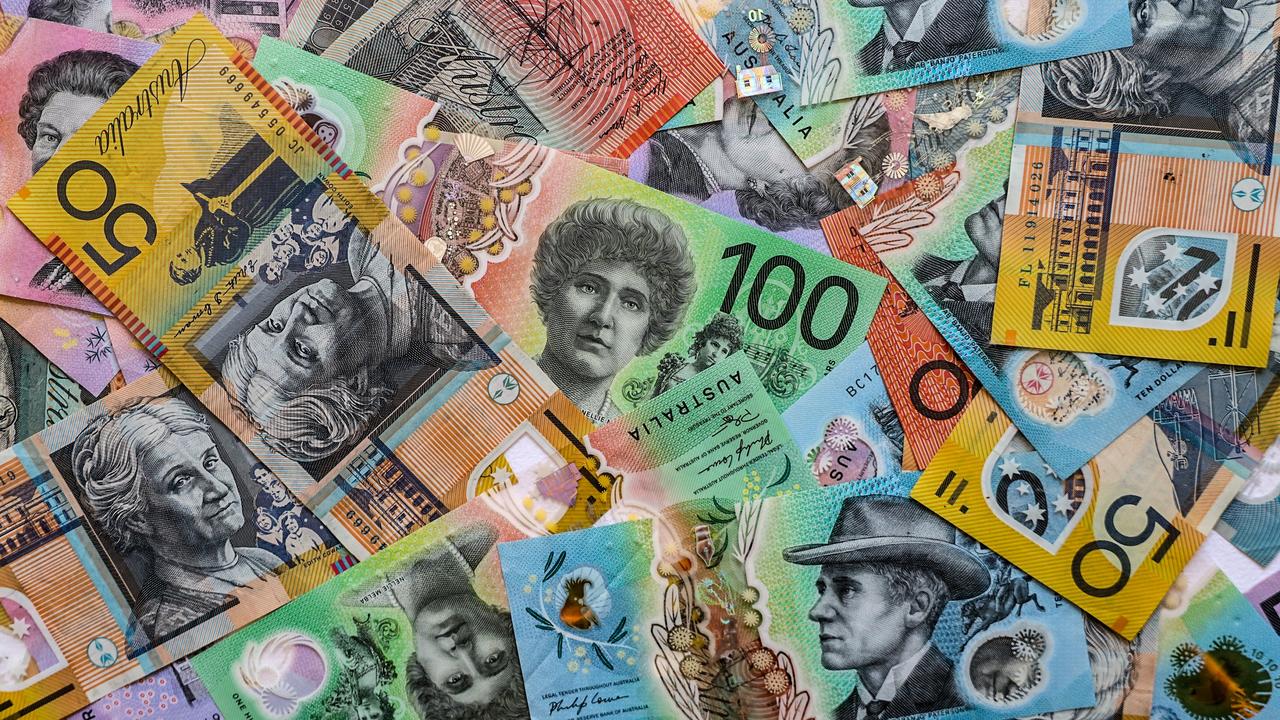Inquiry into Help to Buy scheme hears from economists on risk of higher house prices
Economists for and against a scheme to help more Aussies buy their first homes have agreed there is only a “small” risk of pushing house prices up.

National Breaking News
Don't miss out on the headlines from National Breaking News. Followed categories will be added to My News.
House prices could be pushed up a “very small amount” under the government’s shared equity scheme and limit the types of properties first-home buyers could purchase, economists have predicted.
As Labor battles the Greens to get its next tranche of housing policy through the Senate, economists appeared before a senate committee on Tuesday, arguing what impact the Help to Buy scheme would have on house prices and the market more broadly.
The scheme passed the House of Representatives last week without the support of the Greens or the Coalition and is being examined by senators before the Bill is voted on.
The program, which was announced by Prime Minister Anthony Albanese during the 2022 election campaign, would allow up to 10,000 first-home buyers a year for four years to co-purchase a house with the government via the Housing Australia agency with a 2 per cent deposit.
Under the scheme, the government would take equity of up to 40 per cent in a home to lower deposit and loan servicing costs.
With the Coalition a hard no, the government needs the support of the Greens and the senate crossbench to make the scheme a reality.
The minor party is prepared to do a deal but says it won’t support the scheme unless the government limits negative gearing and scraps tax concessions – which Mr Albanese has ruled out.

One of the biggest issues the Greens have with the Help to Buy scheme is the claim that it is a “lottery” that would force house prices up further, pushing home ownership further out of reach for would-be buyers who can’t access the program.
Housing Minister Julie Collins and Mr Albanese have denied the scheme would be inflationary, pointing towards its tight targeting to help people who need it without driving up property prices.
Appearing at a senate committee on Tuesday, Grattan Institute economist Brendan Coates said the scheme could have an impact on house prices, but it would be “very small” and on the whole wouldn’t be inflationary.
“If we have 40,000 places, it will be close to zero impact on house prices in the context of Australia’s $10.3 trillion housing market. So we estimate that after four years, those 40,000 places if they’re fully taken up, could see house prices rise by 0.016 per cent, that is a very small number,” he said.

Australia Institute senior economist Matt Grudnoff said because the scheme would increase demand for housing, it would increase the price of housing.
“At 10,000 properties per year (in the Help to Buy scheme), this is so small it’s unlikely to have a significant impact on overall house prices,” he said.
“It might have some impact on the price of the kind of properties that first-home buyers might want to purchase though.”
Mr Grudnoff said the government should instead look at winding back negative gearing and scrapping capital gains tax, which would raise billions of dollars a year the government could instead spend on building social and affordable housing.
“Housing affordability has grown to be one of the largest issues now facing Australia. It cannot be fixed with small and ineffective policies, particularly when those policies will ultimately make housing less affordable,” he said.

Mr Coates said the scheme would be particularly helpful for older, single Australians wanting to get out of the rental market.
“We know that if you do not own your own home in retirement, on current trends, about just under half of those people are currently living in poverty,” Mr Coates said.
“And so Help to Buy offers a pathway back to home ownership and more secure retirement.”
In terms of drawbacks, Mr Coates recommended the government tinker with the income thresholds in the Bill.
“So $90,000 for singles and $120,000 for couples (is too high) … About 75 per cent of working-age singles earn less than $90,000 and 39 per cent of couples earn less than $120,000,” he said.
“So it’s very hard to argue for offering a scheme to people earning above-average incomes because they have got a good chance of buying a home anyway.”
He also recommended raising the minimum deposit from 2 to 5 per cent.
As it stands, the maximum equity contributions proposed are 30 per cent of the purchase price of an existing home and 40 per cent of a new home.
Master Builders Australia told senators the scheme could drive more supply if the maximum equity cap for new homes was increased further.
“We believe the impact of Help to Buy on new home building output could be magnified even further if the maximum equity cap for new homes were increased by even more, perhaps to 50 per cent,” the lobby group said.
Originally published as Inquiry into Help to Buy scheme hears from economists on risk of higher house prices


